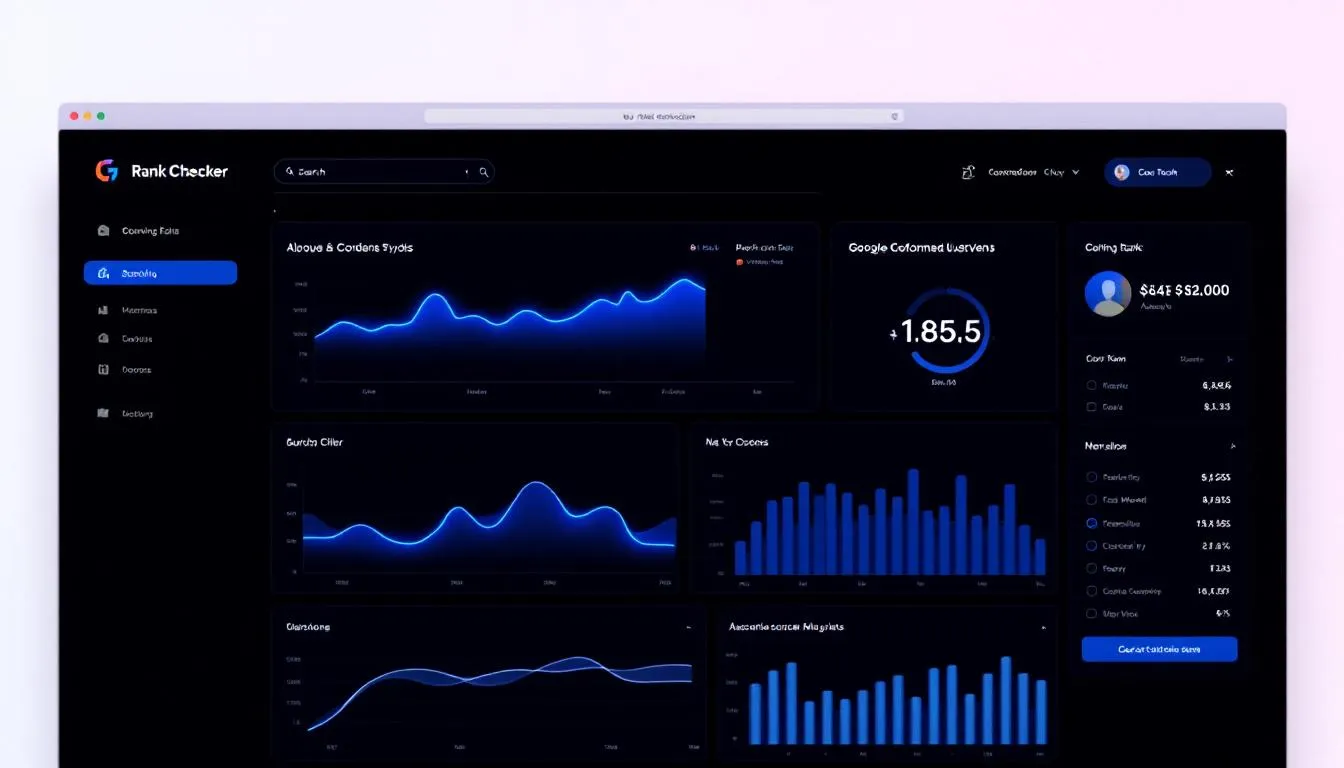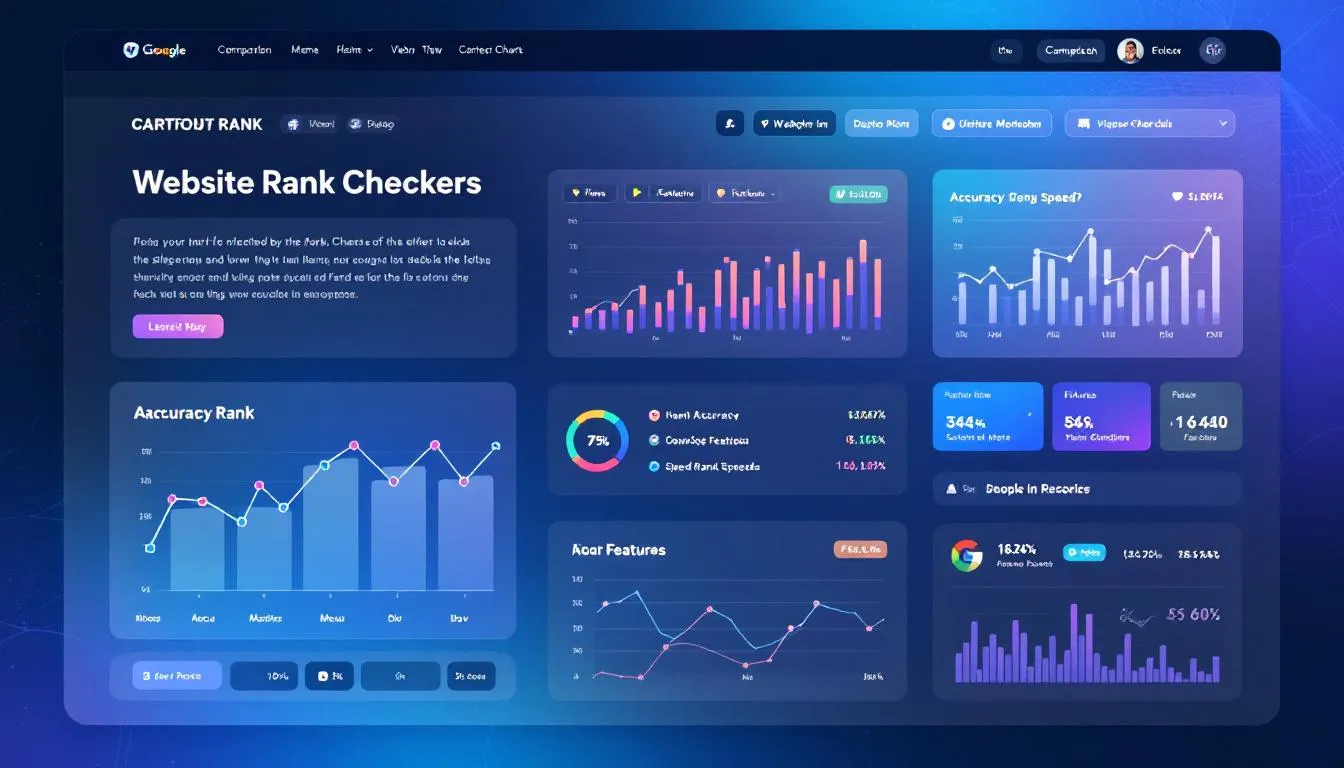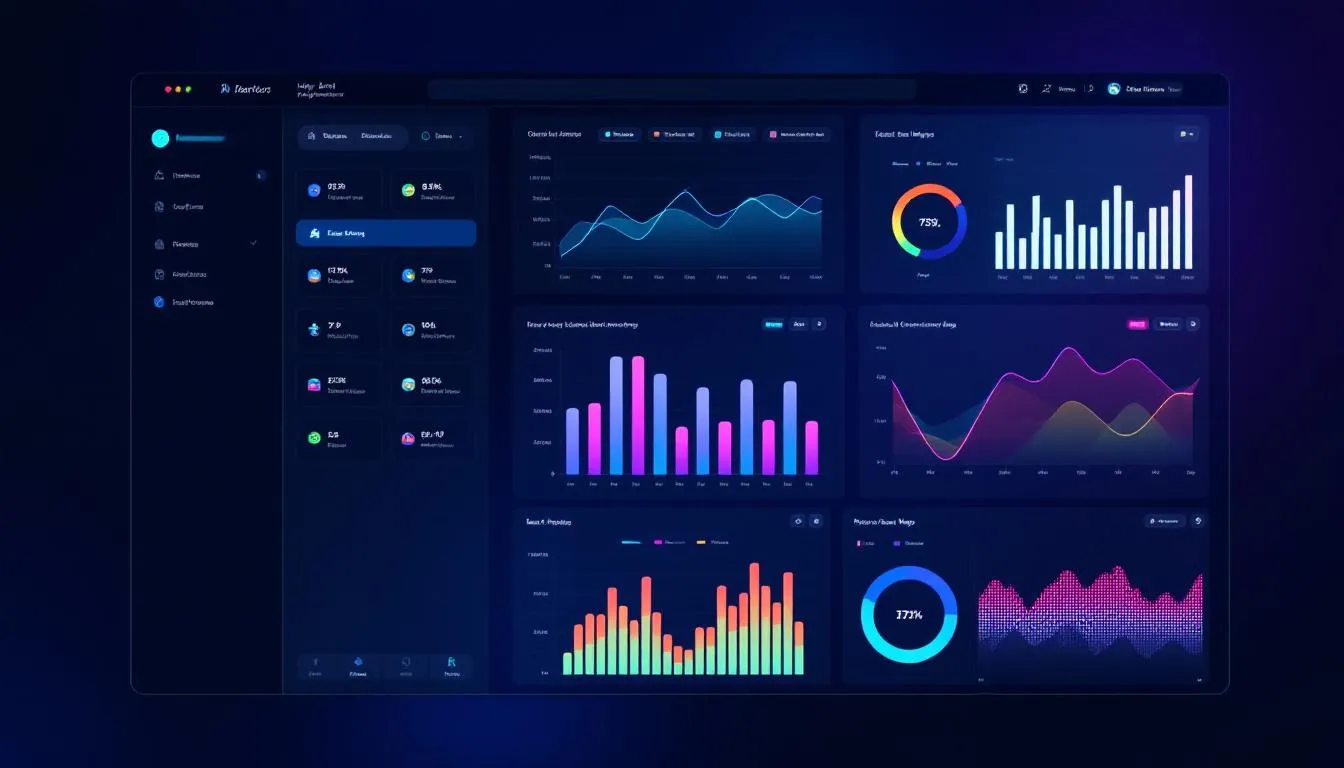Key Takeaways
- Regular website rank checks are essential for monitoring SEO performance, identifying areas for improvement, and adapting strategies to enhance visibility and organic traffic.
- Tools like Google Search Console and various SEO software provide automated rank tracking capabilities, enabling efficient monitoring and detailed insights for informed decision-making.
- Choosing the right rank checker tool, whether free or paid, is crucial for effective keyword tracking and optimizing SEO strategies based on specific business needs.
Understanding Website Rank Check

A website rank check evaluates a site’s keyword positions on Google, allowing users to track performance for specific keywords. This practice is crucial for businesses aiming to stay competitive in the ever-changing digital landscape. Utilizing a keyword rank checker helps monitor site rankings for target keywords and competitors, providing insights into areas for improvement and opportunities for growth.
Monitoring website rankings is not just about knowing your position in search results; it’s about understanding your overall visibility and how well your site performs against others. The visibility information provided by rank checkers indicates how well a website performs in search results and helps identify areas for improvement.
Tools like the Google Rank Checker offer insights on SERP competition, featured snippets, and overall search result visibility, showcasing increases and decreases in google rankings across tracked keywords.
Importance of Keyword Rankings
Keyword rankings are crucial for SEO performance and directly impact online visibility, affecting how easily users can find a website. Monitoring keyword rankings offers insights into organic performance, helping to identify opportunities for enhancing visibility. Strong keyword rankings lead to increased site visibility and higher organic traffic, ultimately contributing to better SEO results.
Tracking local rankings is essential for improving local SEO efforts and effectively targeting specific geographic audiences. Understanding your website’s keyword ranking positions allows you to adjust SEO strategies to target the right keywords and improve site ranks. This, in turn, drives more organic traffic to your site, enhancing your overall online presence.
How Search Engine Rankings Affect Traffic
Search engine rankings have a significant impact on conversion rates due to increased brand visibility. Higher rankings typically lead to improved user engagement metrics, such as click-through rates (CTR), as users are more likely to click on websites that appear at the top of search results. This enhanced visibility translates into more organic traffic, allowing businesses to reach a larger audience and achieve better results from their SEO efforts, aligning with user intent.
Moreover, search engine rankings affect not only the quantity but also the quality of traffic. As your website ranks higher for relevant keywords, the traffic you receive is more likely to consist of users genuinely interested in your offerings. This targeted traffic increases the likelihood of conversions and sales, making keyword rankings a critical component of a successful SEO strategy.
Methods to Check Your Website’s Rank

There are several methods to check your website’s rank, each with its own advantages and drawbacks. The primary methods include:
- Manual rank checking: involves searching for your keywords directly in Google, but this method can be less accurate due to personalization and location-based results.
- Using Google Search Console.
- Utilizing various SEO tools.
On the other hand, utilizing SEO tools provides automated tracking of rankings, enabling more efficient monitoring and detailed insights. These tools offer a comprehensive view of your website’s performance, allowing you to compare rankings over time and make data-driven decisions to improve your SEO efforts.
Manual Rank Checking
Manual rank checking involves analyzing search results manually to determine page ranking. When performing a manual rank check, consider the following:
- Ensure that results aren’t personalized by using incognito mode.
- Be aware that this method can be time-consuming.
- Understand that it may lead to inaccuracies.
Despite these drawbacks, manual rank checking provides a basic understanding of your keyword rankings.
Manual checks can be useful for occasional spot checks but are not recommended for comprehensive rank tracking due to their limitations.
Using Google Search Console
Google Search Console is a recommended tool for efficient rank tracking and is free to use. It provides faster tracking than manual checks, making it a convenient choice for users. However, it has limitations; it only tracks terms that it discovers naturally, which can restrict the visibility of certain keywords.
Users can view their average position and ranking history for tracked terms, offering valuable insights into search positions and performance. Additionally, Google Search Console allows users to track keyword rankings on a local level, including specific cities or states.
Utilizing SEO Tools
SEO tools like Semrush and Ahrefs offer extensive features for rank checking:
- Semrush provides Position Tracking for monitoring specific terms and receiving updates that help in tracking website rankings efficiently.
- Ahrefs allows you to track both desktop and mobile rankings, making it versatile for different devices.
- The keyword rank checker software helps track website SEO ratings, identify growth actions, and monitor rating trends.
In less than 60 seconds, you can obtain Google keyword rankings for any website using a keyword rank checker. When checking rankings, consider the following:
- Select the right search engines, as different engines return varying results for the same keyword.
- Specify the search engine based on your target audience.
- Take into account factors like country and language, which can significantly influence your audience’s search behavior.
Google’s returned results can vary significantly based on geographical location, influencing the ranking insights you receive. Ahrefs’ Keyword Rank Checker can track mobile rankings in 5 countries and desktop rankings in 14 countries, providing a broader view of your website’s performance in different markets, including Google’s search results.
Features of a Good Website Rank Checker

Having a reliable website rank checker is crucial for understanding your organic search visibility and making informed SEO decisions. A comprehensive rank checker tool offers insights into overall website visibility and page position. It also includes keyword search volume, snippet details, and SERP competition. Selecting an appropriate rank checker tool depends on various factors, including the specific needs of a business and the features of the tool.
An effective rank checker should offer real-time results, competitor analysis, and the ability to track both mobile and desktop rankings. These features ensure that you have a holistic view of your website’s performance and can make timely adjustments to your SEO strategy.
Real-Time Results
Rapid updates to tracking metrics help adapt SEO strategies promptly based on the latest data. Real-time ranking updates allow SEO professionals to respond quickly to changes in keyword performance and market dynamics.
Adapting SEO strategies to real-time data ensures that brands remain competitive in an ever-changing digital landscape. Timely ranking updates are essential for maximizing online visibility and optimizing overall SEO performance.
Competitor Analysis
Competitor analysis is critical in understanding your position in the market and identifying growth opportunities. Monitoring keyword rankings and comparing them against competitors allows for the identification of other players ranking for the same terms. Competitors rank for certain terms can be challenging due to competition from established and authoritative websites.
Competitor analysis features in SEO tools provide the functionality to track and compare SERP performance across competing domains. By understanding your competitors’ strategies, you can identify keyword opportunities and make informed decisions to improve your own rankings.
Mobile and Desktop Rankings
Detailed tracking of both mobile and desktop rankings supports optimization efforts across different platforms. Tracking keyword rankings separately for mobile and desktop is essential for optimizing your website’s performance on both platforms.
This comprehensive approach ensures that your SEO efforts are effective regardless of the device your audience uses.
Detailed Insights from Rank Tracking

Monitoring keyword rankings helps businesses adjust their strategies to meet audience needs effectively. Regular rank tracking helps identify effective SEO strategies based on keyword performance and SERP positions. Analyzing ranking data aids in fine-tuning SEO efforts to boost visibility and enhance user engagement.
Utilizing conversion tracking tools helps in accurately assessing the financial benefits of SEO efforts. Comparing traffic before and after implementing SEO changes can provide clear insights into ROI. Google Search Console provides insights into keyword performance, traffic estimates, and visibility metrics.
Monitoring competitor given keyword rankings helps identify which terms are valuable in the market.
Historical Ranking Data
Tracking historical ranking data enables a clearer understanding of SEO progress and trend analysis over time. Regular analysis of how algorithm changes affect different types of content can reveal patterns for future adjustments. Ahrefs provides historical rankings since 2015, helping users to understand long-term performance.
Examining historical data helps businesses identify effective strategies and areas needing improvement. This long-term perspective is invaluable for making informed decisions and optimizing SEO efforts.
SERP Features Tracking
Monitoring SERP features provides insights into content visibility and can influence overall search ranking performance. By understanding how SERP features like featured snippets and local packs influence visibility, marketers can optimize content accordingly.
Monitoring ranking changes post-update helps in quickly adjusting strategies to maintain visibility.
Local SEO and Geolocation
Tracking local keyword rankings aids in optimizing visibility for specific geographic areas, which is essential for local businesses. BrightLocal stands out for its user-friendly interface and citation management, making it ideal for local SEO professionals. Whitespark offers tools specifically for citation building, which can enhance local search rankings.
Local SEO efforts are crucial for businesses targeting specific regions. By leveraging tools like BrightLocal and Whitespark, businesses can improve their local visibility and attract more organic traffic from their target areas.
How to Use Ranking Data Effectively

Rank tracking serves as a direct measurement of the effectiveness of SEO activities. Monitoring website rankings helps in several ways:
- Indicates the effectiveness of SEO strategy and content relevance.
- Helps identify high-traffic pages and underperformers, improving the SEO strategy.
- Provides comprehensive website ranking data that allows for informed decisions about SEO and content strategy.
Effective keyword tracking involves:
- Identifying areas needing improvement in SEO strategies.
- Regularly comparing ranking changes with business performance metrics to assess SEO effectiveness.
- Establishing a consistent schedule for rank checks to enhance the ability to respond to ranking fluctuations effectively.
The SEO Ranking Checker offers traffic potential insights through visibility rate and snippet-earning content.
Optimizing Content Strategy
Tracking website rankings is crucial for optimizing content strategy as it identifies thriving and struggling pages, including the first page. Here’s what to do based on page performance:
- For high-performing pages: develop more content around those themes.
- For poorly ranking pages: conduct a content audit to assess underlying issues.
- Address content quality issues as they may be a reason for poor page rankings, necessitating targeted improvements.
By focusing on content that resonates with your audience and addressing any quality issues, you can enhance your overall SEO performance and drive more organic traffic to your site.
Responding to Algorithm Updates
Google updates its algorithm over 500 times annually, making it crucial to monitor for ranking fluctuations. SEMrush offers a tool called Sensor that provides:
- A volatility score for tracking the impact of algorithm updates.
- An indication that a low volatility score means your rankings are stable.
- A suggestion that no significant changes are affecting your rankings when the score is low.
Daily rank tracking is recommended after a Google penalty or major algorithm update to quickly assess impacts.
Measuring SEO ROI
Website rankings are directly linked to organic traffic. They also have an impact on conversions and revenue. The ability to see which pages perform well and which need optimization is essential for measuring the return on investment from SEO efforts, backlinks, and the website’s performance.
By analyzing this data, businesses can make informed decisions to enhance their SEO strategies and achieve better results.
Setting Up Regular Rank Checks
Setting up a regular schedule for rank checks is essential for monitoring SEO performance and adapting strategies based on fluctuations. Consistent tracking allows businesses to stay updated with ranking changes and respond promptly to any significant shifts. Depending on your needs, you can choose to track rankings weekly, monthly, or even daily during critical periods.
Weekly tracking allows you to stay updated with frequent changes in rankings and quickly respond to fluctuations. Monthly tracking provides a broader view of long-term trends, allowing for strategic adjustments in your SEO plan.
Daily tracking may be necessary during critical periods such as significant updates or changes in competition.
Weekly Tracking
Frequent weekly checks allow businesses to remain agile in response to SEO fluctuations. These checks help identify quick shifts in ranking that can inform immediate SEO adjustments.
By regularly monitoring your rank on a weekly basis, you can make timely decisions to improve your SEO strategies and stay ahead of competitors.
Monthly Tracking
Monthly tracking in SEO offers a structured approach to monitor and enhance website performance. This method is ideal for evaluating long-term performance and making strategic adjustments.
Monthly tracking provides insights into longer-term trends, allowing for strategic planning around stable keyword performance.
Daily Tracking
Daily checks are essential during significant algorithm updates to promptly address any check ranking disruptions. Monitoring ranks daily can provide critical insights during high-stakes periods, such as significant site changes or updates.
Although time-consuming, daily start tracking ensures that you stay ahead and can quickly adapt to any major changes impacting your site’s rankings.
Choosing the Right Rank Checker Tool
Selecting the right rank checker tool is crucial for effective SEO management. Many tools offer automatic tracking of rankings, providing users with ongoing insights into their keyword performance. The choice between free and paid tools largely depends on your specific needs, the number of keywords you want to track, and the depth of analysis desired.
Free tools like the Google Ranking Tool allow users to check up to 10 keywords without any cost. Paid tools, on the other hand, typically offer more advanced features, such as the ability to export ranking data to CSV format for further analysis.
Using a Bulk Keyword Rank Checker in paid tools can help check website performance for multiple keywords and compare results with competitors efficiently.
Free vs. Paid Tools
Free tools like the Google Ranking Tool offer basic functionalities suitable for small businesses or individual users. In contrast, paid tools provide more comprehensive features, including detailed competitor analysis, bulk keyword checking, and advanced reporting capabilities.
Choosing between free and paid rank checker tools depends on the scale of your SEO efforts and the level of detail you need.
Popular Rank Checker Tools
SEMrush is recognized for its extensive features, including competitor tracking and detailed keyword analysis. Ahrefs supports keyword rankings in 187 countries and can track up to 10,000 keywords. Ahrefs’ Keywords Explorer provides data about current top-ranking pages for any keyword, offering valuable insights into keyword performance and competitive analysis.
Ahrefs updates its keyword data monthly, ensuring users have the most accurate insights. Ahrefs’ Site Explorer displays every keyword for which a website or webpage ranks, allowing for comprehensive analysis.
SE Ranking provides flexible rank tracking options, making it suitable for businesses of various sizes. The Google Rank Checker offers accurate real-time results based on the selected Google version, aiding users in tracking their rankings effectively.
Summary
In summary, monitoring your website’s Google rankings is crucial for maintaining and improving your online visibility. Understanding keyword rankings, their impact on traffic, and the methods to check them can significantly enhance your SEO strategy. Utilizing tools like Google Search Console, Semrush, and Ahrefs provides comprehensive insights that help optimize your site’s performance.
By setting up regular rank checks and choosing the right rank checker tool, you can stay ahead of the competition and ensure your website consistently ranks high in search results. Remember, effective SEO is an ongoing process that requires continuous monitoring and adjustments. Stay proactive, leverage the right tools, and watch your website climb the rankings, driving more organic traffic and achieving better results.
Frequently Asked Questions
What is the purpose of a keyword rank checker?
A keyword rank checker serves to monitor and assess website rankings for specific keywords and competitor performance, enabling businesses to maintain competitiveness and pinpoint opportunities for enhancement.
How does search engine ranking affect website traffic?
Higher search engine rankings directly lead to increased organic traffic, as they improve click-through rates and user engagement, ultimately enhancing conversions and sales. Thus, maintaining a strong position in search results is crucial for maximizing website traffic.
What are the benefits of using Google Search Console for rank checking?
Using Google Search Console for rank checking offers valuable insights into search performance, including faster tracking, average position, and ranking history for keywords. This tool enables effective monitoring and optimization of your website’s visibility in search results.
Why is it important to track both mobile and desktop rankings?
Tracking both mobile and desktop rankings is crucial for effectively optimizing your website’s performance across platforms, thereby enhancing your overall SEO strategy. This ensures you meet the varying user experiences and preferences on each device.
How can historical ranking data be useful?
Historical ranking data is crucial for evaluating SEO progress and analyzing trends over time, as it highlights effective strategies for sustained performance. Consequently, leveraging this data can significantly enhance decision-making in digital marketing efforts.
#WebsiteRankCheck #KeywordRankChecker #GoogleRankings #SEOMonitoring #RankTracking #SearchConsole #SEMrush #Ahrefs #CompetitorAnalysis #MobileRankings #DesktopRankings #SERPTracking #HistoricalData #LocalSEO #GeoTargeting #RealTimeUpdates #FreeSEOtools #PaidSEOtools #BulkKeywordCheck #MeasureSEO #RankCheckSchedule #WeeklySEO #MonthlySEO #DailySEO #KeywordInsights #TrafficGrowth #SearchRanking #ConversionBoost #OnlineVisibility #GoodSolutionsTech
